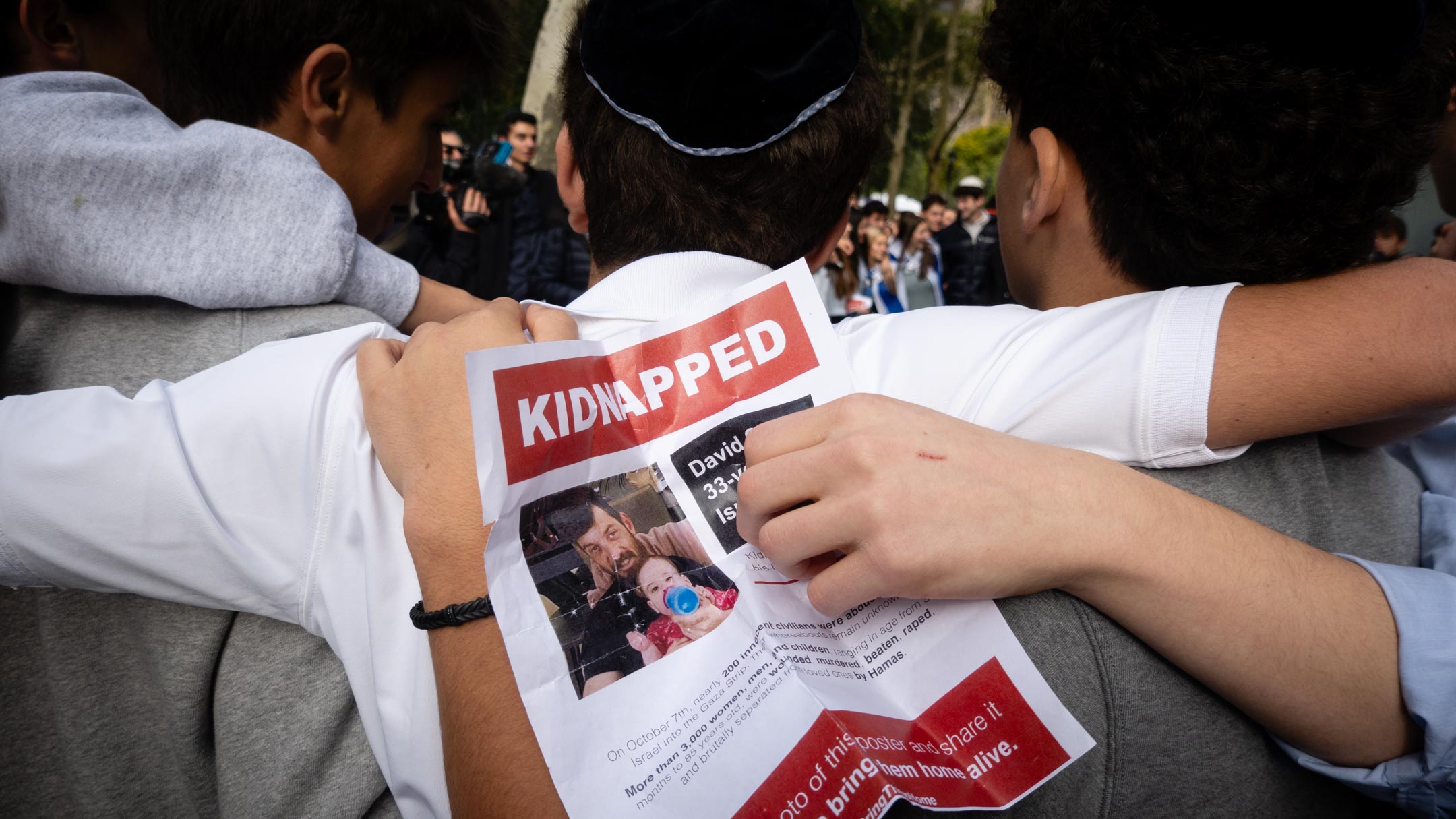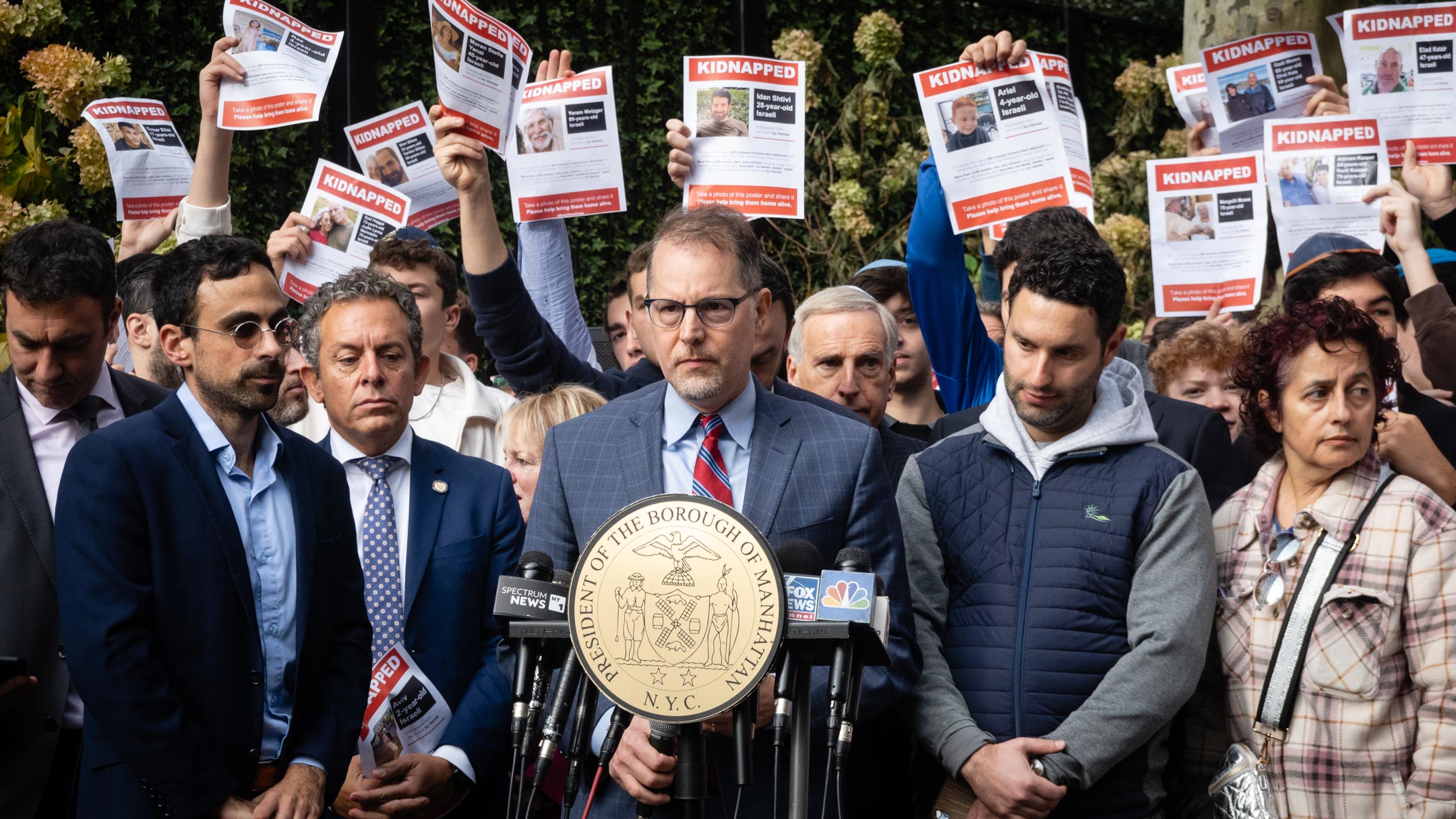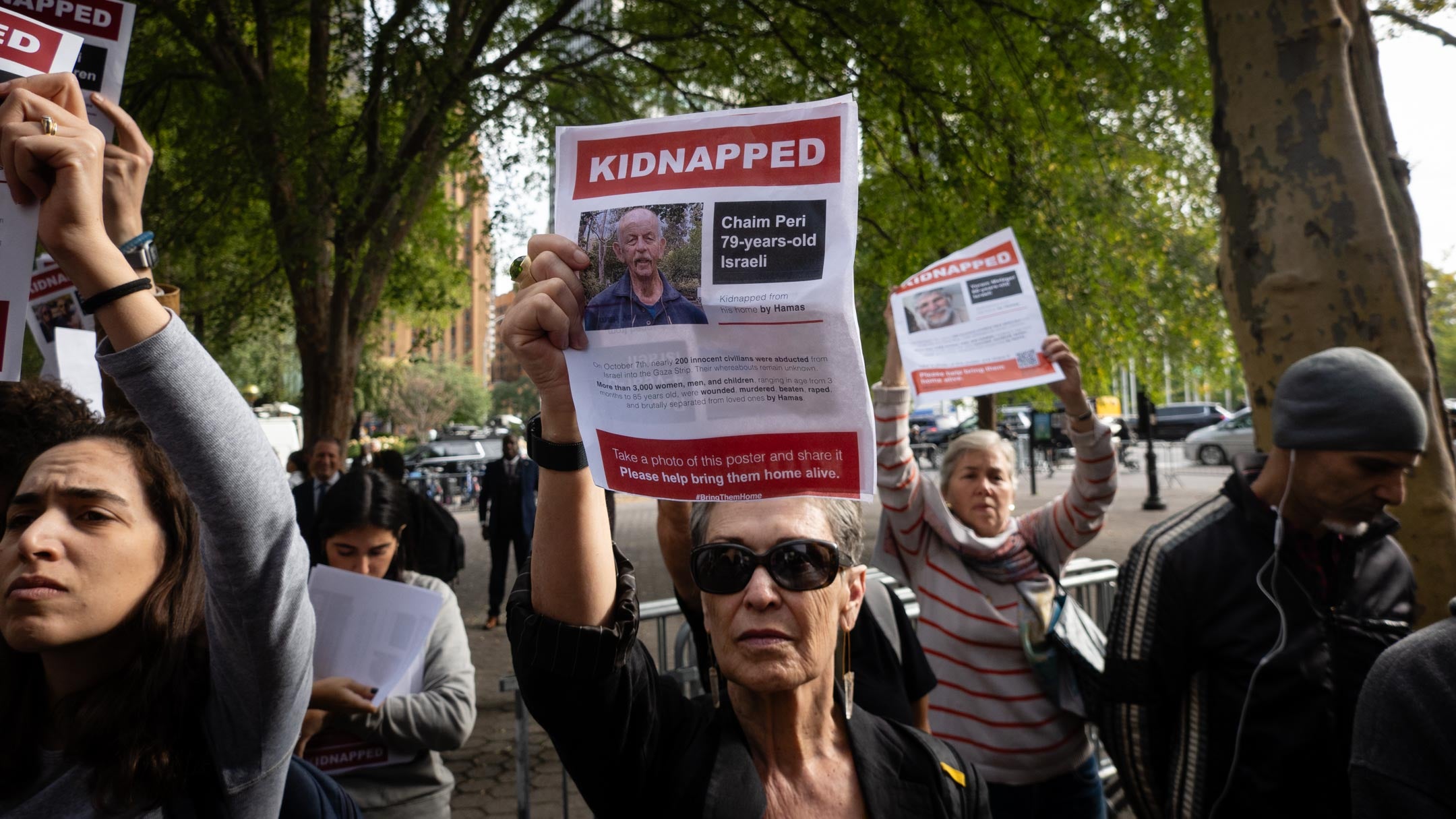Families of hostages, Jewish leaders plead to put politics aside and bring home Hamas captives
The New York City press conference is part of a broad strategy to keep Israel’s hostages at the center of public discourse

Students hold images of Israeli hostages held by Hamas at a rally demanding their release, in New York City, October 18, 2023. (Luke Tress)
(New York Jewish Week) – In front of a crowd of 200 outside the United Nations, Navé Strauss described his cousin, Hagar — who loves traveling, trying new food, listening to Radiohead, and has three children, one of whom celebrated their 10th birthday on Oct. 6.
“Have I humanized it enough?” Strauss said. “Do you know this person? I’m sure you know this person. But she’s somewhere in Gaza and I don’t know where and I don’t know when I’m going to see her next.”
Like hundreds of other Israelis, Hagar and her three children are being held by Hamas, which took the captives when it invaded Israel from Gaza on Oct. 7, killing 1,400 and wounding thousands. At the gathering on Wednesday morning, relatives of the hostages pressed for their release and criticized the international response to the abductions.
Strauss, other family members of hostages and New York City politicians and Jewish leaders addressed the crowd, vowing to keep the hostages’ plight on the public agenda — and to prevent it from being subsumed by debate over the war between Hamas and Israel.
“I’m not interested in politics, I’m not interested in ‘othering,’” Strauss said. “There are children in danger.”
In all, Israel says it has notified the families of 199 hostages that their loved ones are in Gaza. Hamas says other terror groups operating in the territory are holding about 50 additional people. Hamas released footage of one of the captives on Monday, a video widely understood as a psychological ploy.
“We feel this viscerally in New York. We feel as if these children are our children,” said Manhattan Borough President Mark Levine, who is Jewish. “Because of their pain we will not be silent. We are demanding the immediate and unconditional release of the hostages.”

Manhattan Borough President Mark Levine, flanked by Israelis whose family members are held by Hamas, at a rally demanding their release, in New York City, October 18, 2023. (Luke Tress)
Flanked by students from the Ramaz School, an Orthodox day school in Manhattan, holding fliers with images of the captives, Levine said in Hebrew, “We’re not forgetting and we’re not giving up. We will do all we can to return them home in peace. We promise.”
Also at the rally at Dag Hammarskjöld Plaza were New York City Comptroller Brad Lander, who is Jewish; the chair of the City Council’s Jewish Caucus, Eric Dinowitz; other New York City lawmakers; and representatives of the New York Board of Rabbis, the Jewish Community Relations Council of New York, the UJA-Federation of New York and the American Jewish Committee’s New York chapter; and Shany Granot-Lubaton, a prominent Israeli activist.
Several speakers lamented that the hostage crisis hasn’t drawn harsher condemnations, decrying what they said was a double standard against Israel.
“Kidnapping is very straightforward. Somehow that message gets lost,” Dinowitz said. “In every generation we face strife and challenges, and in every generation there are people who question our simple right to exist.”
Levine compared the situation to the global outcry when Boko Haram terrorists abducted 276 girls in Nigeria, sparking a massive international response.
“Where is that level of outrage now?” he said. “Where are the government denunciations? Where is the clear messaging from the United Nations? Where’s the outrage on social media?”

Israel supporters hold images of Hamas hostages at a rally demanding their release, in New York City, October 18, 2023. (Luke Tress)
Ahead of the protest, the Ramaz students led the crowd in a rendition of traditional Jewish songs calling for God to help those in distress and protect children. Attendees stood in a circle, some holding images of the hostages and Israeli flags. The conference wrapped up with the audience singing Israel’s national anthem, “Hatikvah.”
In the area around the plaza, fliers with photos of the captives and information about them were taped to streetlights and parking meters, part of an international campaign to raise awareness of the crisis.
Speakers largely did not address how Israel should conduct its war on Hamas or what the outcome of the fighting should be, though Strauss did suggest that arms should be laid down so that the hostage crisis could be addressed.
“There are actual human beings who are in danger right now,” Strauss told the crowd. “Drop the weapons, stop the fighting, prioritize the hostages.”
This article originally appeared on JTA.org.













